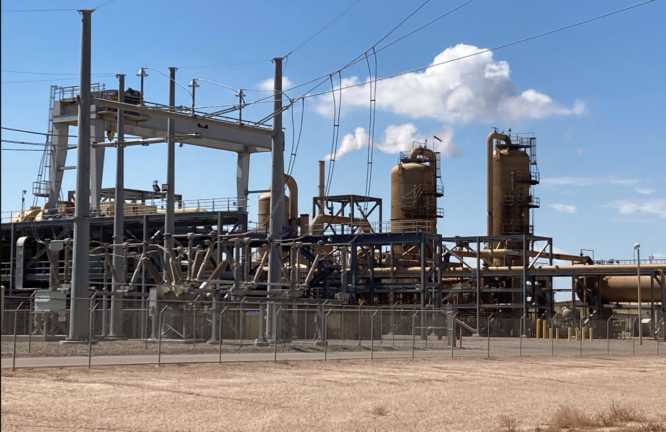Lithium Valley might be the site of the following Californian gold rush 2023

The car industry is deploying fleets of electric vehicles driven by lithium-ion batteries, but businesses have been sluggish to engage in mining and extraction.
Change is coming. Clean energy-powered lithium enterprises are being established near the Salton Sea in California. Like California’s 1849 Gold Rush, firms are rushing to strike it rich in Lithium Valley.
EnergySource Minerals’ president and CEO is Eric Spomer.
“Annual tons generated are used to determine this resource’s size. Spomer stated, “And we’re confident that this is over 300,000 tons a year.” “Right now, that’s way more than half of the world supply of lithium.”
EnergySource Minerals’ lithium project might be operational by 2025, according to Spomer.
Lithium is mined from rock mines or evaporation ponds. Spomer claimed EnergySource Minerals’ plant will be the world’s cleanest and most efficient lithium process.
Geothermal energy plants bring brine to the surface, which the Salton Sea uses in its process. Six hundred-degree brine rises from over a mile underground. It generates power via steaming turbines.
The mineral-rich brine was previously returned to the soil. In the next months, EnergySource will build a billion-dollar plant to extract lithium from brine and inject it underground.
The region’s lithium estimates are astonishing. Spomer told 60 Minutes that the region could collect enough metal to supply 7.5 million electric cars a year, half of U.S. car and truck sales.
EnergySource is spearheading the Salton Sea lithium charge. 10 geothermal energy stations are operated by Warren Buffett’s BHE Renewables. Australian business Controlled Thermal Resources is working on another. Both initiatives are lithium rushes.

At a test facility near EnergySource, Controlled Thermal Resources has been refining its method. CEO Rod Colwell said the business would develop a lithium recovery factory depending on what they learn. Lithium was extracted in their test laboratory.
“We know it works,” added Colwell.
Lithium sells for six times its extraction cost of $4,000 per ton.
However, as firms attempt to profit from what California Gov. Gavin Newsom calls “the Saudi Arabia of lithium,” others wonder: Will it work for everyone? One of California’s poorest areas has lithium. Since 1905, agricultural runoff has supplied the Salton Sea’s water. For decades, the sea has evaporated. Tourism has declined due to environmental degradation, poisonous dust, and economic hardship. 16% of the region is unemployed.
Environmentalist Frank Ruiz, the Audubon Society’s local program director and a commissioner on the Blue Ribbon Commission on Lithium Extraction in California, said the lithium business may provide better employment and benefit the community. He stated the area’s animals and communities must coexist with industrialization.

“We must learn to balance the tables,” Ruiz remarked.
As demand for electric vehicles grows, that balance will be crucial.
“Over 50% of our lineup and retails sales will be battery electric vehicles by the end of the decade,” Stellantis North American operations chief Mark Stewart told Bill Whitaker. Chrysler, Jeep, and Ram vehicles are owned by Stellantis, which is investing $35 billion to make electric cars and trucks.
“We’re reimagining our factories—on our assembly plants,” Stewart stated. “They’re rolling our plug-in hybrids—and looking to two new battery joint ventures that are in full construction right now.”
Even though lithium won’t be commercially accessible for years, Stellantis has agreed to buy it from Controlled Thermals Resources for 10 years. Lithium from the Salton Sea is also purchased by General Motors.
Due to tax incentives under the 2022 Inflation Reduction Act, electric car prices are falling and will soon match gas automobiles. EnergySource’s Spomer also credited tax incentives for domestic lithium development. The lithium-ion battery supply chain has been heavily invested, so lithium won’t need to be imported.
“It’s a competitive advantage,” said Spomer. We can lead internationally. Lead, why not?
